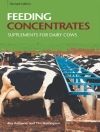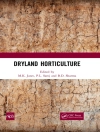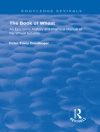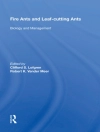This book provides a practical guidance and a set of principles for improving management of saline and alkali waters and thus would be useful for different stakeholders, including agricultural students, researchers, environmentalists, and policy makers.
The worldwide aggregated area with occurrence of saline and brackish groundwater is about 24 million square kilometers causing annual food losses to the extent of food requirements of 170 million people. For fostering the safe and reliable use of these waters, researchers have innovated management techniques helping sustainable irrigation with waters otherwise rated earlier as unfit. Vast pool of information has been put together in this book covering groundwater irrigation scenario and need for non-conventional waters; extent, genesis, and global distribution of saline groundwater; impacts of saline and alkali irrigation waters on soils and crops; management approaches for sustaining irrigation with typical saline and alkali ground waters for agricultural and horticulture crops; steady and non-steady state models for salt and water dynamics vis-a-vis crop responses; alternate uses of highly saline waters; water quality guidelines for irrigation under different soil and agro-climatic conditions and ultimately some researchable and policy issues for promoting irrigation with these waters.
Jadual kandungan
Chapter 1. Water Resources Used in Agriculture: Historical and Global Perspectives.- Chapter 2. Genesis, Distribution and Hydro-chemical Features of Saline Groundwater.- Chapter 3. Effects of Irrigation with Saline, Saline-sodic and Alkali Waters on Soils.- Chapter 4. Managing Saline Waters for Irrigating Agricultural Crops.- Chapter 5. Managing Saline-sodic and Alkali Waters for Crop Production.- Chapter 6. Salt and Water Dynamics under Saline Irrigation: Modeling Approaches.- Chapter 7. Managing Saline Irrigation in Horticultural Crops.- Chapter 8. Use of Highly Saline Water beyond Common Agricultural Crops.- Chapter 9. Water Quality Guidelines for Irrigation.- Chapter 10. Promoting Sustainability of Saline Irrigation: The Way Forward.
Mengenai Pengarang
Dr. Paramjit Singh Minhas has about four decades of research experience in natural resource management. He commenced his scientific career as a scientist in the Indian Council of Agricultural Research and achieved the positions of Senior Scientist, Project Coordinator (AICRP Management of Salt-Affected Soils and Use of Saline Water in Agriculture); Assistant Director General (Integrated Water Management); Director of Research, Punjab Agricultural University, Ludhiana; Assistant Director General (Soil and Water Management); and Director, National Institute of Abiotic Stress Management from where he superannuated. Later, he was an Emeritus Scientist with ICAR. His research areas include irrigation and water quality management, soil physics, soil-water-plant interactions, managing salt-affected soils and coping strategies for edaphically stressed environments. The soil-water-crop management technologies put forward formed the basis for irrigation water quality guidelines; innovated planting techniques for greening saline soils and shallow basaltic soils; bioremediation/agro-forestry for long-term use of wastewater; identification of bio-regulators to mitigate drought and sodicity stresses. Dr Minhas is a recipient of the Rafi Ahmed Kidwai Award and Hari Om Ashram Trust Award in Natural Resource Management from ICAR, Jain-INCID Krishi Sinchai Vikas Puraskar from CWC, Swami Pranavananda Saraswati Award in Environmental Science and Ecology from UGC, Su Kumar Basu Award from IARI, CSSRI Excellence Award on ‘Soil Salinity and Water Management’, and 12th International Congress Commemoration Medal from ISSS. He is a Fellow of the National Academy of Agricultural Sciences (NAAS), Punjab Academy of Sciences (PAS), Indian Society of Soil Science (ISSS), and Associate Editor of Agricultural Water Management Journal.
Dr. Manzoor Qadir is an environmental scientist working on water-related sustainable development through contributions to policy, institutional and biophysical aspects of unconventional water resources, water recycling and safe reuse, water quality and environmental health, and water and food security under changing climate. Manzoor has led teams of eminent professionals as Coordinating Lead Author to contribute to global assessments, such as the Comprehensive Assessment of Water Management in Agriculture, and the International Assessment of Agricultural Science and Technology for Development. He has implemented multidisciplinary projects on water and land management with major work in the Middle East and North Africa, Central Asia, South Asia, and Sub-Saharan Africa regions. In addition to supervising post-doctoral fellows, postgraduate students, and interns, he has undertaken several international and regional capacity development initiatives such as organizing knowledge-bridging workshops and training courses for young researchers. Before joining the United Nations University Institute for Water, Environment, and Health (UNU-INWEH) in Canada, Manzoor previously held professional positions at the International Centre for Agricultural Research in the Dry Areas (ICARDA) and International Water Management Institute (IWMI); Alexander-von-Humboldt Fellow and Visiting Professor at Justus-Liebig University, Germany; and Associate Professor at the University of Agriculture, Pakistan.












